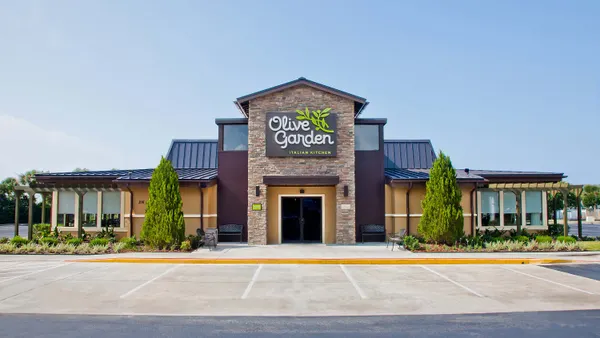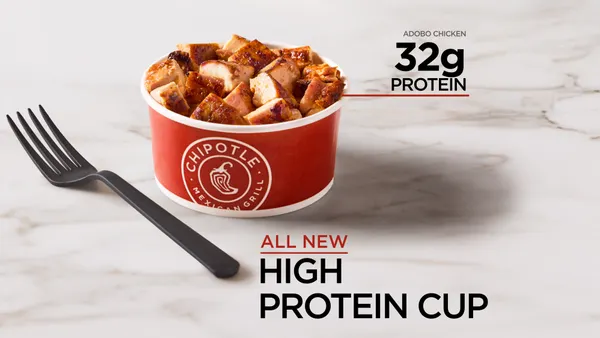Dive Brief:
- New York-based online food marketplace Goldbelly, founded in 2013, has received a $20 million round of funding led by restaurateur and Shake Shack founder Danny Meyer and his company, Enlightened Hospitality Investments, according to a press release. Goldbelly ships food and beverages from regional restaurants to households across the U.S.
- "We've created a platform to empower these iconic local brands to connect with food lovers across the country, and look forward to enabling more people to enjoy these magical food experiences around the country," Goldbelly CEO Joe Ariel told Skift Table.
- The funding will be used to help grow Goldbelly and expand its technology and operations teams. Meyer will also join the company's advisory board.
Dive Insight:
While most of today's restaurant delivery services are focused on speed and convenience, Goldbelly offers a different value add: nostalgia. It's a differentiator that caught Meyer's attention, and seems to leverage a unique and largely untapped opportunity in the delivery space.
"You don't have to have visited one of the cities whose products Goldbelly sells to love it, but if you went to school there or took a business trip there and discovered a local flavor and then you can actually reconnect with that emotional feeling and have it on your doorstep the next day, that's an amazing thing," Meyer told Skift Table.
Goldbelly not only enables consumers to have access to local and regional food they would otherwise have to travel to experience, it also allows those smaller businesses to scale to a national audience. The second factor is especially critical, as independents and smaller restaurant groups struggle to compete with deep-pocketed, national chains that can more easily capture a growing digital consumer set.
The company currently boasts 350 partners in its digital marketplace. Ariel told the Wall Street Journal, “there could be thousands” of restaurants and other purveyors on the site.
Meyer calls the concept a "category disruptor" and he, of all people, would know what that looks like. His Shake Shack chain has pushed the innovation envelope since it debuted as a hot dog cart in 2004. Skift Table also named Goldbelly one of its top restaurant startups to watch this year.
The market landscape seems ripe for Goldbelly, as the company caters to two major industry trends — a rising demand for local/artisanal food and the growth of food e-commerce. Mintel predicts the specialty foods market will grow from 14.8% of the total market now to 18% in 2021. Local food sales grew from $5 billion to $12 billion between 2008 and 2014, according to Packaged Facts. The same study predicted local food sales would jump to $20 billion in 2019, surpassing the growth of total food and beverage sales in the U.S. In the e-commerce space, online grocery sales are predicted to reach $100 billion in consumer sales by 2025, and restaurants are racing to beef up their digital and mobile offerings to catch up to this changing consumer purchasing behavior.
Though its value proposition meets a lot of consumer demands, Goldbelly will still face some challenges. Stciker shock may be the biggest obstacle, since costs are higher to cover rush shipping and packaging needs. For example, as the Wall Street Journal reports, potato knishes from Yonah Schimmel’s Knish Bakery in Manhattan sell for $4.25 each, but are more than $12 each through Goldbelly. Ariel said the economies of scale should kick in soon to reduce some of these costs. Plus, research has shown that consumers are willing to pay more not only for convenience, but also premium products and experiences.
Goldbelly's rise reflects the new reality of the restaurant world. Eateries are no longer confined to just brick-and-mortar, front-of-house and back-of-house formats. As the growth of delivery and carryout show, consumers are demanding that food purveyors come to them now — even if that entails a cross-country shipment.








